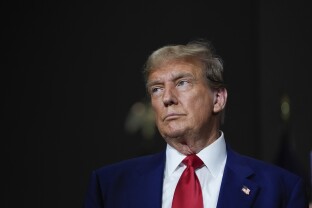Donald Trump will sign an executive order on Monday meant to end birthright citizenship for the children of unauthorized immigrants, setting him up for a lengthy legal battle.
An incoming White House official told reporters that an order on birthright citizenship — the automatic U.S. citizenship granted to any child born on U.S. soil — would be among Trump’s first actions as president.
Much of what happens next will depend on what the order actually says.
Birthright citizenship is based on the 14th Amendment and was affirmed by the Supreme Court more than a century ago. The incoming administration official said Trump’s order would “clarify that, on a prospective basis, the federal government will not recognize automatic birthright citizenship for children of illegal aliens born in the United States.”
Immigration lawyers have been preparing for a rash of executive action and are likely to respond quickly after the expected birthright citizenship order is signed.
Even Republicans have acknowledged the potential legal difficulty of restricting birthright citizenship.
“I support ending it by whatever means can be effective,” Sen. Ted Cruz said in December. “That’s actually a disputed legal question, and there are serious scholarly arguments on both sides.”
The Trump administration will take several other steps on immigration, per incoming officials — including declaring a national emergency at the southern border, designating criminal cartels as global terrorists and ending the asylum process.
“He ran on securing the border,” Rep. Kat Cammack told NOTUS on the Hill on Monday morning. “He’s going to secure the border. Promises made, promises kept.”
The president will also reinstate the death penalty in an executive order that “directs the attorney general to seek capital punishment for the murder of law enforcement officers and capital crimes committed by illegal aliens.”
“This is about public safety, and this is about the victims of some of the most violent, abusive criminals we’ve seen enter our country in our lifetimes, and it ends today,” one official said.
Incoming White House officials also outlined a slew of other executive actions Trump will take immediately after taking office, including defining that the official policy of the United States is recognizing only two sexes, male and female. Under this policy, federal agencies and employees, as well as government-issued documents like passports, will use the term “sex” rather than “gender,” officials said.
“These are sexes that are not changeable, and they are grounded in fundamental and incontrovertible reality,” one incoming official said.
Yet another Day One executive order will “end DEI inside the federal government,” the official said.
“This includes environmental justice programs, equity-related grants, equity action plans, equity initiatives, these types of things,” the official said.
It’s a step that’s followed years of criticism from those in Trump’s orbit against diversity, equity and inclusion efforts both in government and the corporate world. The order will likely impact programs founded under Joe Biden’s administration — like Justice40, which dedicates federal environmental funding to disadvantaged communities, and Department of Transportation grants that fund projects in areas of persistent poverty.
—
Reese Gorman and Oriana González are reporters at NOTUS. Shifra Dayak is a NOTUS reporter and an Allbritton Journalism Institute fellow.
Sign in
Log into your free account with your email. Don’t have one?
Check your email for a one-time code.
We sent a 4-digit code to . Enter the pin to confirm your account.
New code will be available in 1:00
Let’s try this again.
We encountered an error with the passcode sent to . Please reenter your email.


